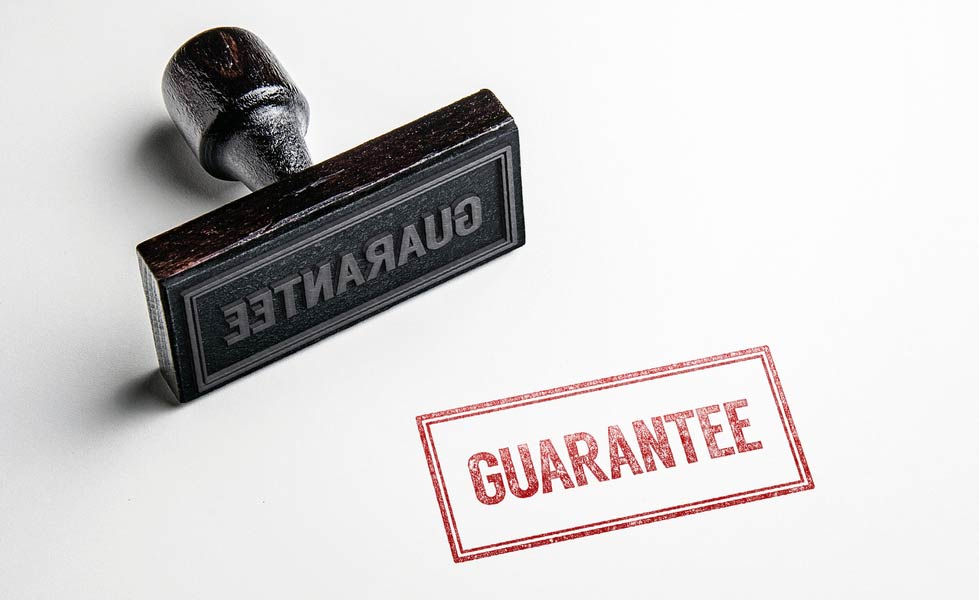A. at is a Guarantee?
A contract of guarantee is an accessory contract, by which the surety undertakes to ensure that the principal performs the principal obligations. It has been described as a contract to indemnify the Creditor upon the happening of a contingency namely the default of the principal to perform the principal obligation. The surety is therefore under a secondary obligation which is dependant upon the default of the principal and which does not arise until that point.
A guarantee can be issued by any person above the age of eighteen (18) years or by a body corporate. In most cases, directors of a company guarantee the obligations of a company whether financial or otherwise.
A personal guarantee is a continuing security meaning that there is no agreed termination or end date to the guarantee for as long as the debtor is indebted to the lender. In practice, when a debtor defaults, the creditor has discretion to pursue either the guarantor, the creditor or both for recovery of the debt owed.
It is worth noting that if a person executed a personal guarantee to support the principal debtor’s application for loan, the guarantor concerned puts all his property at risk if the principal debtor defaults. This means, the guarantor of a loan will retain his/her/its burden as guarantor, until the principal borrower clears its debt to the Creditor.
B. What are the key features of a Guarantee?
Guarantees are contracts and therefore need to have the key elements of a contract that is an offer, acceptance, consideration and intention to be legally bound.
However, since guarantees are embodied in a deed, consideration need not pass.
A guarantee creates a personal liability on the part of the guarantor and this liability is not limited to the charged property meaning that a guarantor personal property will be on the line and could be sold at the worst case scenario. In CRDB Bank Ltd v. Issack B Mwamasika & 2 Others Civil Appeal of Tanzania No. 139 of 2017 (unreported) the court of Appeal in its decision stated that a bank will go after the personal assets of a guarantor should the principal borrower default and further that guarantors cannot escape the legal consequences waiting loan guarantors incase their principal debtors fails to pay their loans or default their repayment schedules.
C. What are the consequences of giving a personal guarantee?
A guarantee when enforced can have negative impact on the guarantor’s personal wealth and future securities. There is nothing inherently wrong with issuing a guarantee – in fact, it is a standard for most business financing – but you should have a clear understanding of the possible consequences of personal liability on business debts. A guarantor should understand the practical legal effect of the documentation and the transaction.
The following are some of the repercussions of issuing a personal guarantee:
- Bankruptcy Order
If the principal debtor fails to pay, then the liability of the guarantor arises. If the guarantor fails to make payment then the creditor may file bankruptcy proceedings against the guarantor and the guarantor may be forced to sell their personal assets to repay the loan.
- Reports to Credit Reference Bureaus (CRB)
If the account is reported to the CRB, the debt will lower the guarantor’s available credit and could make it harder to take out a personal loan.
- Continuing Obligations
Guarantees have a continuing obligation clause, in that the liability of the guarantor will be in force for as long as the principal debtor continues borrowing and the amounts borrowed have not been paid. Therefore, such guarantees rarely have a termination clause. This makes it difficult for a guarantor to pull out of a guarantee.
It is plain that until that transaction is completed, there remain questions which are open for investigation before the guarantor are called upon to discharge their full obligations under the guarantee as demanded of them by the bank.
The available options for a guarantor are either to file for their own bankruptcy or get a release and discharge from the creditor.
D. What do you need to watch out for before issuing a personal guarantee?
One needs to watch out for the following in a personal guarantee:
- Conformity to the basic requirements of a contract
Ensure that the guarantee conforms to the basic requirements of a contract, such as an offer, acceptance, intention to be legally bound and that it is contained in a deed.
- Continuing Obligations
If the guarantee creates a continuing obligation on the guarantor, it means that the guarantor will be liable not only for the current financial liabilities but also for future advances, there is therefore no agreed termination or end date to the guarantee.
If the intention is to provide security only for the current advances then ensure that there is no continuing obligation clause. As this will tie down the guarantor.
- Capacity to give Guarantee
If it is a company giving guarantee, then it should ensure that it is empowered to guarantee loans in its Articles of Association. In addition, the company should ensure to pass a resolution approving the issuance of the corporate guarantee. However, the failure to pass or produce this resolution would not be affect the validity of the corporate guarantee given that the lender would be protected under the indoor management rule.
- Duress, Misrepresentation and Undue Influence
Lenders should ensure that guarantees are not procured under duress, misrepresentation or undue influence. As a precautionary measure the guarantor should be advised to obtain independent legal advice and sign a letter of independent legal advice or confirm in the guarantee that they have obtained independent legal advice and are aware of the consequences of default on the part of the borrower.
- Indemnity from the borrower/underlying obligor
A guarantee automatically provides the guarantor with certain rights (such as a right to be indemnified by the underlying obligor and to marshalling). These guarantor rights may come into conflict with those of the beneficiary of the guarantee. For this reason, guarantee documents frequently exclude or restrict the application of these rights. Therefore, if a guarantor pushes to have these rights included in the guarantee , it is advisable for the guarantor to obtain an indemnity from the underlying borrower.
E. What defenses does a guarantor have against claims of non-fulfillment of guarantee obligation?
A guarantor has the following defenses against claims for non-fulfilment of guarantee obligations under a guarantee:
- Extension of time: If the creditor affords more time to the principal borrower without the consent of the guarantor, then the guarantor stands discharged from liability;
- Variation to the contract: If the loan contract between the principal borrower and the lender is amended in a way that will affect the obligation of the guarantor without his or her consent, then the guarantor shall stand discharged from their obligation;
- Release of the debtor: this is where the creditor releases a security in respect of an outstanding debt;
- Lack of consideration: if the company gives guarantee and does not receive a commercial benefit in consideration of its issuance of the guarantee, the corporate guarantor will have a defense of lack of consideration; and
- There are other defenses are duress, undue influence, misrepresentation and non est factum (the guarantee is fundamentally different from what the guarantor intended to execute/mistake). In the National Bank of Kenya Ltd v. Pipeplastic Samkolit (K) Ltd [2002]2 EA 503 where it was stated:-“A court of law cannot rewrite a contract, between parties. The parties are bound by the terms of their contract, unless coercion, fraud or undue influence are pleaded and proved. There was not the remotest suggestion of coercion, fraud or undue influence in regard to the terms of the charge”.
- Acting in bad faith against guarantor or the creditor connives with the Principal Debtor in respect of the loan facilities.
- If the Creditor commits a repudiatory breach of his contract with the principal so that the principal is entitled to treat the contract as at end, the surety is also discharged from further liability
- If the Creditor and Principal debtor carried out dealings without the consent of the surety, which dealings are prejudicial to the surety.In Keating on Construction of Contracts, 9th Edition, the Learned Author says the following at page 394: – “A surety is undoubtedly and not unjustly the object of some favour both at law and in equity and …. is not to be prejudiced by any dealings without his consent between the secured creditor and the Principal debtor. Conduct that prejudices the surety’s position may discharge the surety’s obligation.”
F. When Does the Obligation of the Guarantor arise?
Most guarantees are drafted with an indemnity obligation such that the guarantor agrees that they are primarily liable and can be sued regardless of the position of the principal borrower. The liability of the guarantor arises from the terms of the guarantee since a guarantee is a contractual and is binding to the parties, when a party executes its bound by the terms of the guarantee.
- The obligation of a guarantor arises upon default by the principal debtor.
- Where the guarantee instrument refers “normal bankers demand rights” and “payable on demand” in such a case the creditor may recall the facilities on demand meaning the debtor will pay the money when demanded.In Lalji Karsan Rabadia & 2 Others V. Commercial Bank of Africa Ltd (2015) eKLR. It was held that there was no misconduct on the part of the bank for demanding repayment of the facilities as the was being guided by the contract documents that the provision for repayment of the loan in the long term was subject to demand provisions set out in the contract instruments.
G. Conclusion
We always advise clients who are considering signing a personal guarantee to take legal advice first. Before they sign they must fully understand their total liabilities under the agreement and be comfortable with the consequences. An experienced solicitor will be able to limit the guarantor’s liability under the personal guarantee, or may be able to suggest alternative security for the loan.
It was stated by Shah JA in the case of Fina Bank Ltd v Spares and Industries Ltd [2000] 1 EA 52:
“It is clear beyond peradventure that save those special cases where equity might be prepared to relieve a party from a bad bargain, it is ordinarily no part of equity’s function to allow a party to escape from a bad bargain”.
Royal British Bank v Turquand (1856) 6 E&B 327





